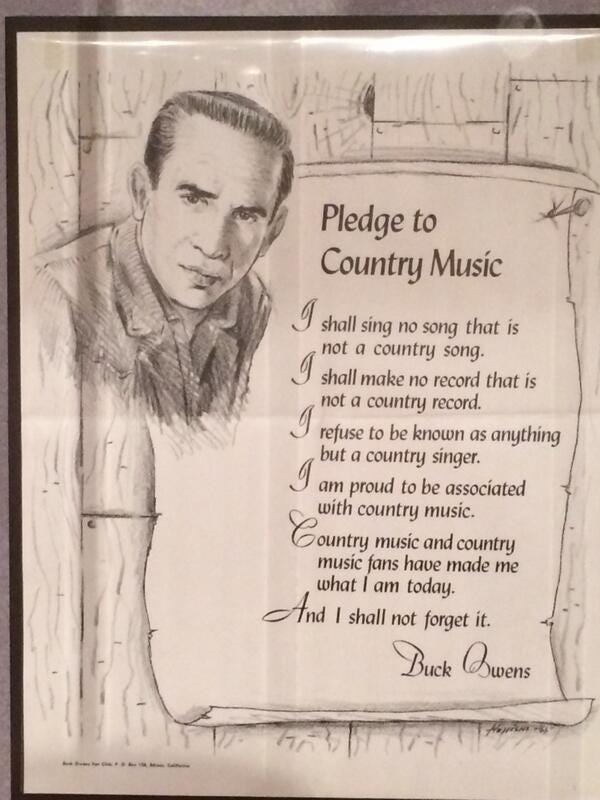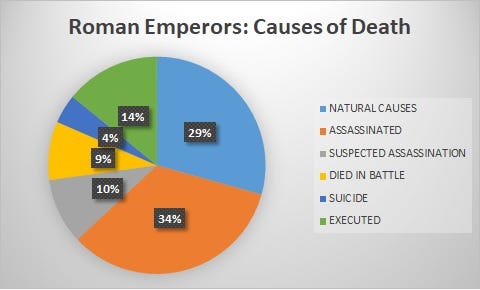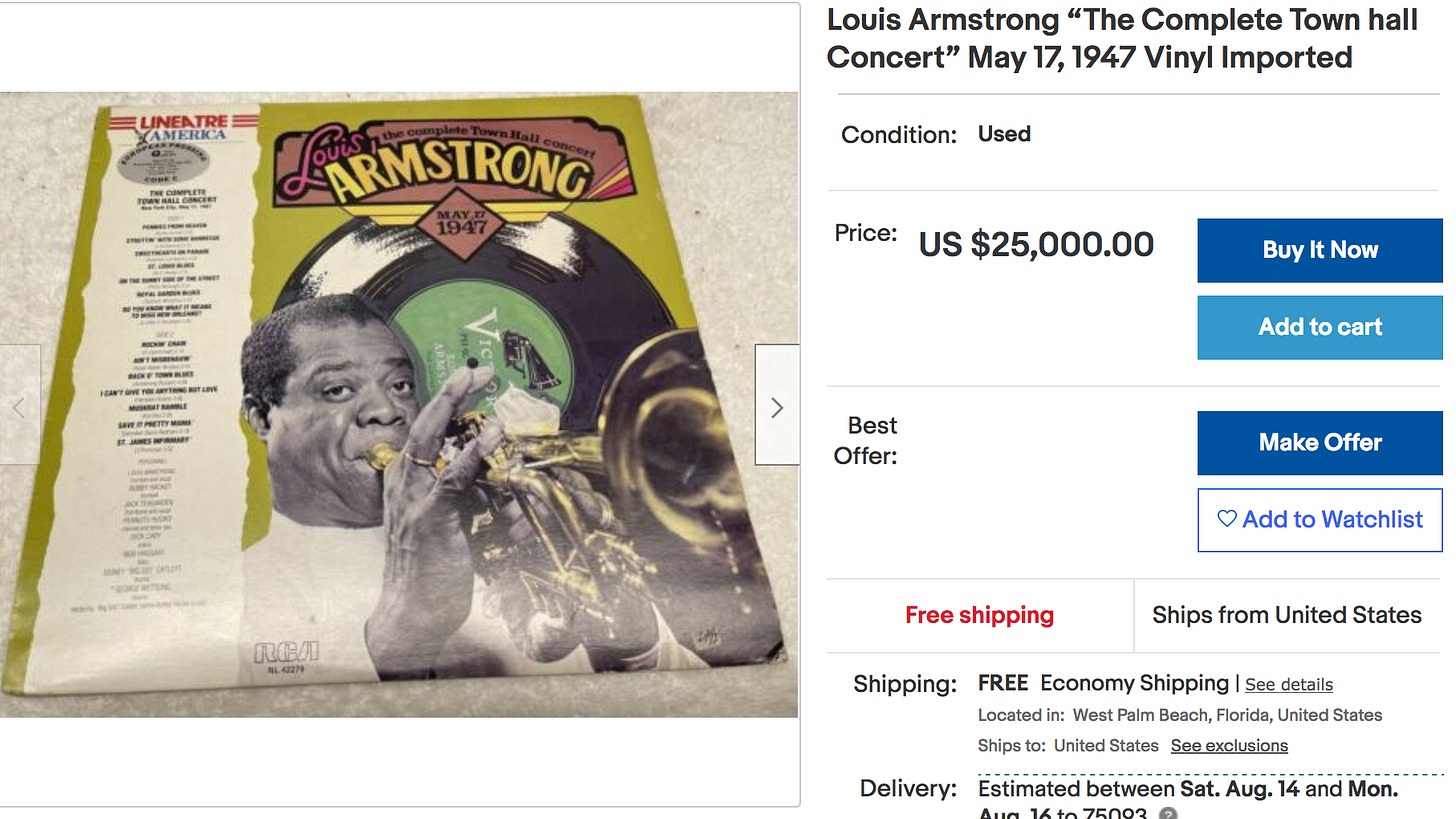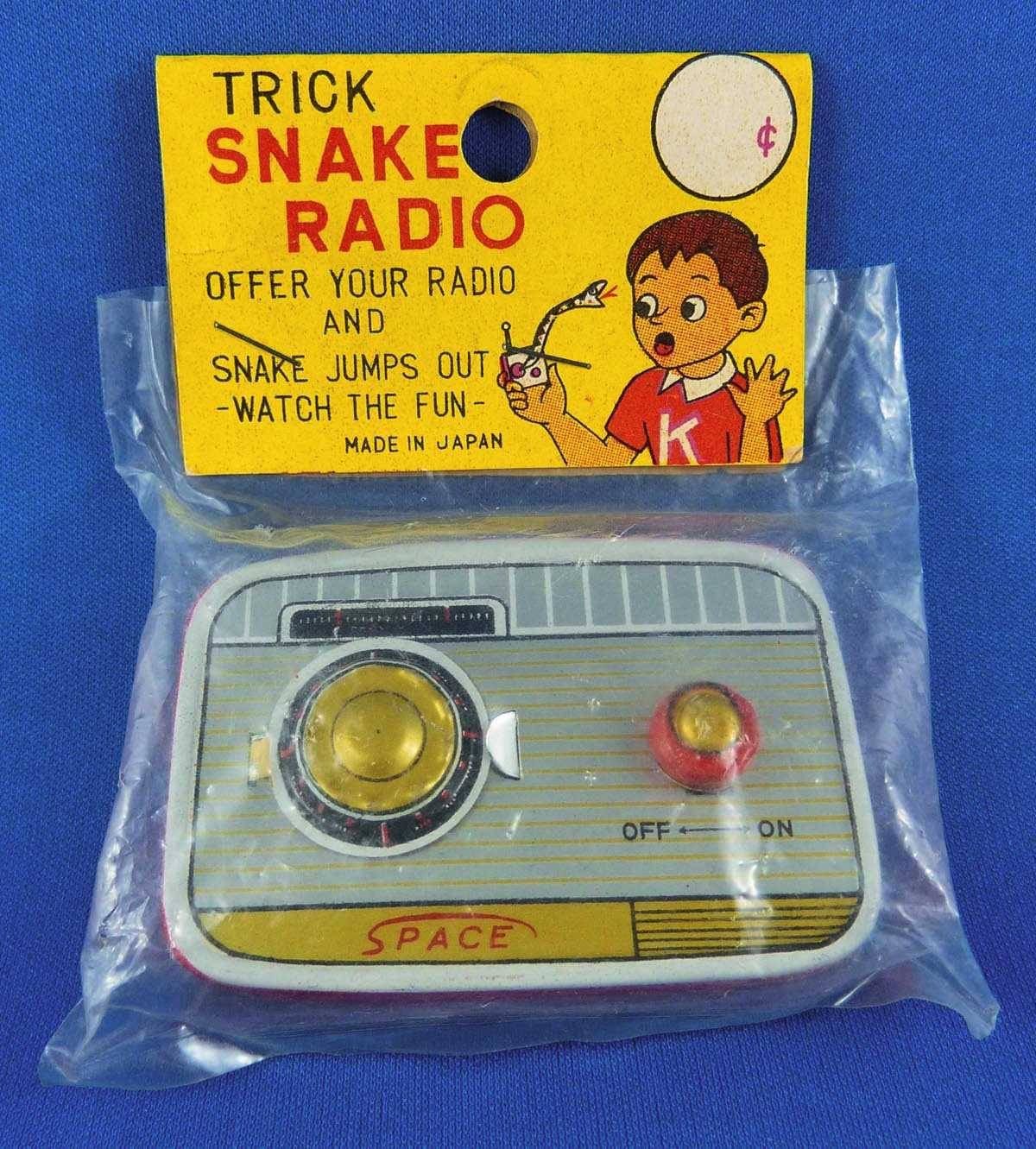How Songs Can Help You Beat the Stock Market (and Other Musical Aspirations)
A motley assortment of links, images, opinions, and various amusements
Here’s my latest broker’s assortment of links, images, opinions, and various amusements—most of them about music. Happy listening!
Let’s start with some music. I’ve been enjoying this new transcription of all three piano parts from Bill Evans’s 1963 recording of the “Love Theme from Spartacus”—featured on the album Conversations with Myself, a rare example of overdubbing in early 1960s jazz. The piano on the date, by the way, was Glenn Gould’s Steinway.
The album earned Evans his first Grammy Award.
“If you’re talking about sheer speed, go back and listen to the runs Evans plays on the ‘Spartacus’ track,” a musician friend once told critic Gene Lees. “He’s as fast as Oscar [Peterson], fully as facile. But he doesn’t use his speed in the same way as Oscar does.”
I especially like the soft and fast counterpoint line that enters at the 3:35 mark.
The Honest Broker is a reader-supported newsletter. Both free and paid subscriptions are available. The best way to support my work is by taking out a paid subscription.
Yale study participants have released songs created as part of hallucination research. For the last couple years, I’ve been conducting a comprehensive survey of scholarly literature on how altered mind states impact musical inspiration. It’s a subject rich in implication, but often reduced to sordid anecdotes or moralizing sermons. So I’m glad to see Yale taking this matter seriously.
After 100 years, technology finally allows music fans to experience legendary singer Enrico Caruso on film with both images and sound.
“Movie Stars Will Talk to You”: In the days of silent films, fans wanted to hear the actual voices of film stars. This recording allowed them to do just that.
You can hire a musician in Mozambique to sing revenge songs about your enemies on WhatsApp.
Here’s Buck Owens’s “Pledge to Country Music.” Makes me wonder what ‘pledges’ musicians in other genres might want to make.
Artifical intelligence tries to create New Yorker cartoons. They’re not very funny—at least not intentionally—but perhaps that’s an essential part of the algorithm.
Here are some risks associated with becoming a Roman Emperor. This tends to disprove Mel Brooks’s rule.
Live music is coming back, but I really wasn’t expecting NIETZSCHE: The Musical! The show features “a range of styles from pop and rock to classical jazz.”
I’m glad people value Louis Armstrong’s music, but $25,000 for a vinyl album seems a bit much. It’s not even autographed, although the brief description promises that the disc is in excellent condition.
A musician has recorded a duet with the “largest wind instrument in the world”—namely the Golden Gate Bridge, which recently has started making an eerie humming sound on windy days.
You can hear the music here, and it’s better than you think. Even so, I prefer Sonny Rollins for my bridge music.
And before you dismiss humming, check out this researcher’s quest to find the “most soothing sound in the world.”
The popularity of positive, upbeat songs can be used to predict gains in the stock market.
Today I learned about the remarkable life story of Hubert Fauntleroy Julian, who did many amazing feats in the air and on the ground. But my favorite is the time he flew high “up above Harlem, where the Trinidadian parachuted several times, the most famous moment coming when he wore a crimson jumpsuit while playing ‘Runnin’ Wild’ on a saxophone.” As a result of this stunt, Julian got known as the “Black Eagle of Harlem.”
Even the streaming platforms can’t do this.
An analysis of the mission statements of 71 different orchestras finds they all promise the same things—even using identical words in many instances. It’s a curious world where every orchestra tells you about their commitment to diversity—while imitating exactly what everyone else is doing.
You are invited to listen to a 100% AI-generated jazz-rock piano performance. I don’t know if it means a thing, but it definitely ain’t got that swing.
This forthcoming documentary on New Orleans jazz funerals looks promising. The premiere is scheduled for New Orleans in November.
Movie trailers are using slower and moodier versions of classic songs to lure audiences.
People with greater empathy experience more pleasure in listening to music. So exercise kindness and compassion this week, and experience the benefits at the nightclub or concert over Labor Day weekend.
Happy listening!











Bill never played the stock market but he was very good at picking the winning horses.
Hi Ted, I thought musings might be an invitation to share mine. I listened to your "Music" book on Audible. When I got to the part where you were maligning the 'song catchers' manipulating the oral tradition for their own selfish motives, I got angry. While I was fuming and trying to find words for my displeasure I kept going back to "that's what the oral tradition is for!" The ones that sing and the ones that catalogue are both manipulating what they received from the past. The lonesome singer in Appalachia isn't trying to preserve something, only trying to derive strength, or comfort, or pleasure from a shared heritage. Then the penny dropped. I suddenly felt an understanding that music (at least for me) is the sinew that binds me to humanity. It is the shared blood that nourishes and cleanses us all. And as you suggest in your book, directs and motivates a communal will.
I don't do research, but I like to ponder whatever direction my mind wanders. Lately I have been thinking about how 'humanity' is not 'the individual.' Humanity seems to be pursuing a path of self destruction which seems inevitable. If you want to know why we are so determined to make the earth uninhabitable, I have a guess, but since knowing won't change anything, I won't bother you with the details unless you ask.